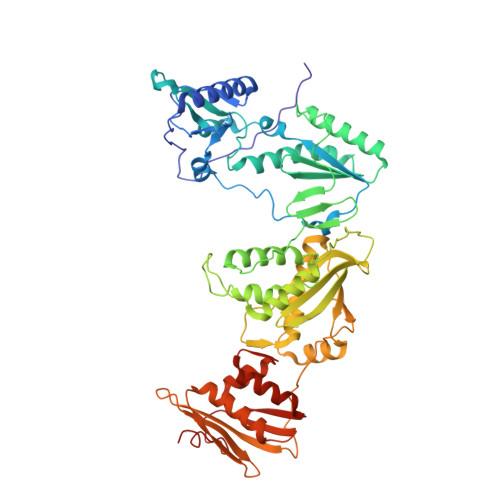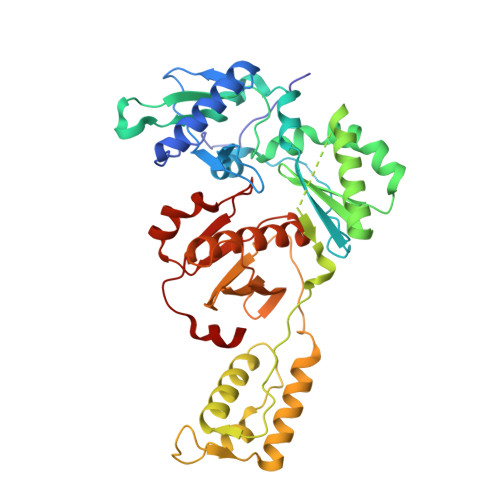Covalent inhibitors for eradication of drug-resistant HIV-1 reverse transcriptase: From design to protein crystallography.
Chan, A.H., Lee, W.G., Spasov, K.A., Cisneros, J.A., Kudalkar, S.N., Petrova, Z.O., Buckingham, A.B., Anderson, K.S., Jorgensen, W.L.(2017) Proc Natl Acad Sci U S A 114: 9725-9730
- PubMed: 28827354
- DOI: https://doi.org/10.1073/pnas.1711463114
- Primary Citation of Related Structures:
5VQQ, 5VQR, 5VQS, 5VQT, 5VQU, 5VQV, 5VQW, 5VQX, 5VQY, 5VQZ - PubMed Abstract:
Development of resistance remains a major challenge for drugs to treat HIV-1 infections, including those targeting the essential viral polymerase, HIV-1 reverse transcriptase (RT). Resistance associated with the Tyr181Cys mutation in HIV-1 RT has been a key roadblock in the discovery of nonnucleoside RT inhibitors (NNRTIs). It is the principal point mutation that arises from treatment of HIV-infected patients with nevirapine, the first-in-class drug still widely used, especially in developing countries. We report covalent inhibitors of Tyr181Cys RT (CRTIs) that can completely knock out activity of the resistant mutant and of the particularly challenging Lys103Asn/Tyr181Cys variant. Conclusive evidence for the covalent modification of Cys181 is provided from enzyme inhibition kinetics, mass spectrometry, protein crystallography, and antiviral activity in infected human T-cell assays. The CRTIs are also shown to be selective for Cys181 and have lower cytotoxicity than the approved NNRTI drugs efavirenz and rilpivirine.
- Department of Pharmacology, Yale University School of Medicine, New Haven, CT 06520-8066.
Organizational Affiliation:



















